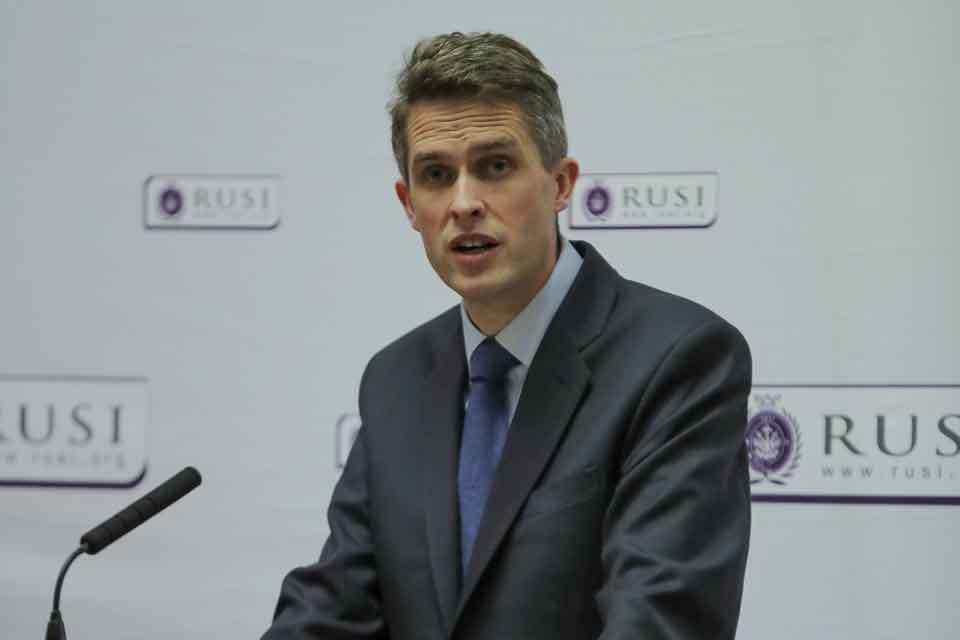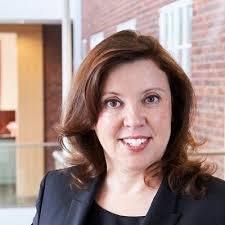Around nine in 10 girls spoken to by Ofsted as part of its review into safeguarding in schools said that sexist name calling and being sent unwanted explicit content happened either ‘a lot’ or ‘sometimes’.

The review, which also found that boys share content of nude girls between them like a collection game, found that sexual harassment, including online sexual abuse, has become ‘normalised’ for children and young people.
Amanda Spielman, Her Majesty’s Chief Inspector, said: “This review shocked me. It’s alarming that many children and young people, particularly girls, feel they have to accept sexual harassment as part of growing up. Whether it’s happening at school or in their social life, they simply don’t feel it’s worth reporting.”
The Department for Education asked Ofsted to carry out the review of schools’ safeguarding policies in April after the Everyone’s Invited website, set up for victims to anonymously post their experiences of sexual abuse, gained more than 11,000 posts, some from children as young as nine.
Education secretary Gavin Williamson asked Ofsted to look at the extent and the severity of the issue and ensure schools have appropriate processes in place to allow pupils to report concerns freely, knowing these will be taken seriously and dealt with appropriately. The review also aimed to ensure that schools have adequate guidance on how to deal with sexual harassment and violence allegations, and whether the current inspection regimes in both state and private schools are robust enough to address concerns and promote the welfare of children.
At the same time the NSPCC set up an independent helpline to support children and families affected by sexual harassment in schools and has already received hundreds of calls.
Ofsted’s inspectors visited 32 state and private schools and colleges and spoke to more than 900 children and young people about the prevalence of sexual harassment in their lives and the lives of their peers.
The review found:
- Children often don’t see the point of challenging or reporting this harmful behaviour because it’s seen as a normal experience.
- Many teachers and leaders consistently underestimate the scale of these problems. They either didn’t identify sexual harassment and sexualised language as significant problems, they didn’t treat them seriously, or they were unaware they were happening.
- Most children felt that the relationships, sex and health education (RSHE) they received didn’t give them the information and advice they needed to navigate the reality of their lives.
- Girls were frustrated that there wasn’t clear teaching of what constitutes acceptable and unacceptable behaviour.
- Many teachers said they don’t feel prepared to teach outside their subject specialism, or lack knowledge on topics like consent, healthy relationships and sharing of sexual images.
The report also highlighted that local safeguarding partners (LSPs) had varying levels of oversight of the issues for children and young people in their area. While some were working closely with schools to understand children’s experiences, a small number told Ofsted that sexual harassment was not a significant problem for schools and colleges in their local area, which Ofsted said “isn’t plausible”. It was clear that effective joint working between LSPs and all schools and colleges was not happening consistently.
Amanda Spielman, Her Majesty’s Chief Inspector, said: “This is a cultural issue; it’s about attitudes and behaviours becoming normalised, and schools and colleges can’t solve that by themselves. The government needs to look at online bullying and abuse, and the ease with which children can access pornography. But schools and colleges have a key role to play. They can maintain the right culture in their corridors and they can provide RSHE that reflects reality and equips young people with the information they need."
“I hope policymakers, teachers, parents and young people will read the report and work together to change attitudes and put a stop to harmful behaviour. Sexual harassment should never be considered normal and it should have no place in our schools and colleges,” she added.
Ofsted’s review makes a number of recommendations including:
• A culture should be developed by school leaders where all kinds of sexual harassment are recognised and addressed, including with sanctions when appropriate.
• The RSHE curriculum should be carefully sequenced with time allocated for topics that children and young people find difficult, such as consent and sharing explicit images.
• High-quality training should be provided for teachers delivering RSHE.
• Improved engagement between multi-agency safeguarding partners and schools.
The review also makes recommendations for government, including:
• The government should consider the findings of the review as it develops the Online Safety Bill, in order to strengthen online safeguarding controls for children and young people. It should also develop an online hub where schools can access the most up-to-date safeguarding guidance in one place.
• A guide should be developed for children and young people to explain what will happen after they talk to school staff about sexual harassment and abuse.
• The government should launch a communications campaign about sexual harassment and online abuse to help change attitudes, including advice for parents and carers.
Ofsted currently inspects most schools but the Independent Schools Inspectorate inspects private schools and the review identifies areas where both inspectorates can sharpen practice.
While safeguarding is well covered on inspection, a review of past inspections found that they were sometimes not robust enough on sexual harassment. For example, inspectors did not always record how they followed up with school leaders who failed to share any evidence of past incidents of sexual harassment.
Both inspectorates will be making updates to training, inspection handbooks and inspection practices where necessary, in light of the findings.
In response to the findings, the government has announced that teachers and school leaders will be better supported to recognise sexual harassment and abuse and teach confidently about issues of consent, online pornography and healthy relationships.
Dedicated inset day time should be earmarked by school and college leaders to help train staff on how to deal with sexual abuse and harassment among pupils and how to deliver the government’s new compulsory Relationships, Sex and Health Education curriculum (RSHE).
Strengthened safeguarding guidance will also be introduced to boost teacher confidence in identifying and responding to these issues.

Education Secretary Gavin Williamson said: “Sexual abuse in any form is completely unacceptable. No young person should feel that this is a normal part of their daily lives – schools are places of safety, not harmful behaviours that are tolerated instead of tackled.
“Ofsted’s review has rightly highlighted where we can take specific and urgent action to address sexual abuse in education. But there are wider societal influences at play, meaning schools and colleges cannot be expected to tackle these issues alone.
“By reflecting young people’s real experiences in what they are taught, I hope more people feel able to speak up where something isn’t right and call out activity that might previously have been written off as ‘normal’,” he added.

Children’s Commissioner Rachel de Souza added: “The most fundamental responsibility that education settings have is to keep children safe. There needs to be a clear focus on preventing peer-on-peer abuse from happening in the first place, as well as providing timely and sensitive support to those affected. The contributors to ‘Everyone’s Invited’ showed great courage in sharing their stories of abuse and harassment. Now is the time for these stories to be met with action.
“I am pleased to see Ofsted calling for a whole school and college approach to this issue and I look forward to working with them, the Department for Education, education settings and their safeguarding partners to help make the commitments and recommendations set out in this report a reality,” she added.
The DfE has confirmed it will take forward work to strengthen the RSHE curriculum so that teachers are clearer on when different elements should be taught, such as sharing images online and consent, as well as updating statutory guidance to ensure that the definitions used are in line with what pupils understand and experience.
The NSPCC helpline set up in response to the allegations made on Everyone’s Invited will also run for another four months until October.
Dr Mary Bousted, joint general secretary of teaching union NEU, said: “The NEU welcomes the importance Ofsted places on high-quality training for teachers delivering RSHE, and its highlighting that insufficient time is given to the subject. This is about getting the balance in the curriculum right. Proper support for schools to introduce the new RSHE curriculum can’t be done on the cheap. Teachers in the review shared their concerns about being asked to teach outside their subject specialism and we’d like the Department for Education to engage with this staffing challenge.”
Paul Whiteman, general secretary of school leaders’ union NAHT, added: “We support the clear recommendations Ofsted makes for school and college leaders; sexual harassment and online sexual abuse must not be tolerated in any educational setting, but schools do need to be given the resources, training, support and guidance to implement their whole school approach effectively.
“Sexual harassment and violence is a problem that reaches far beyond the school gates. There is no doubt that schools can and should play a key role in this work, but they can’t solve it alone. We need government and other agencies to play their part too,” he added.


